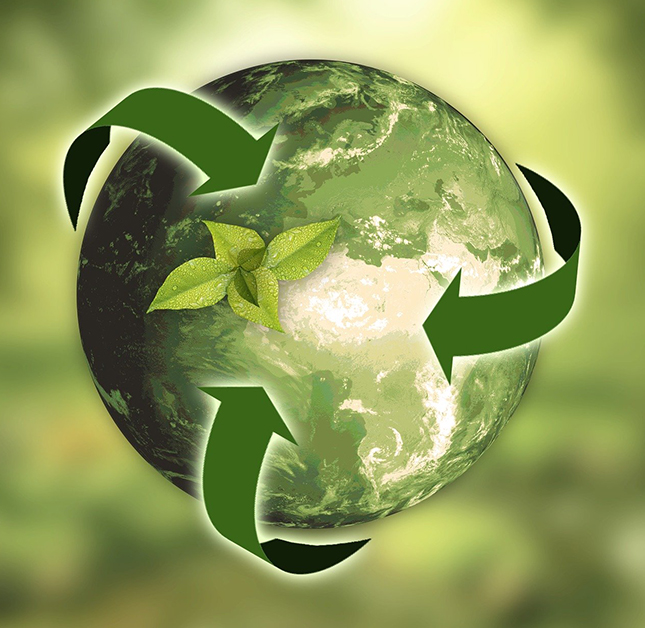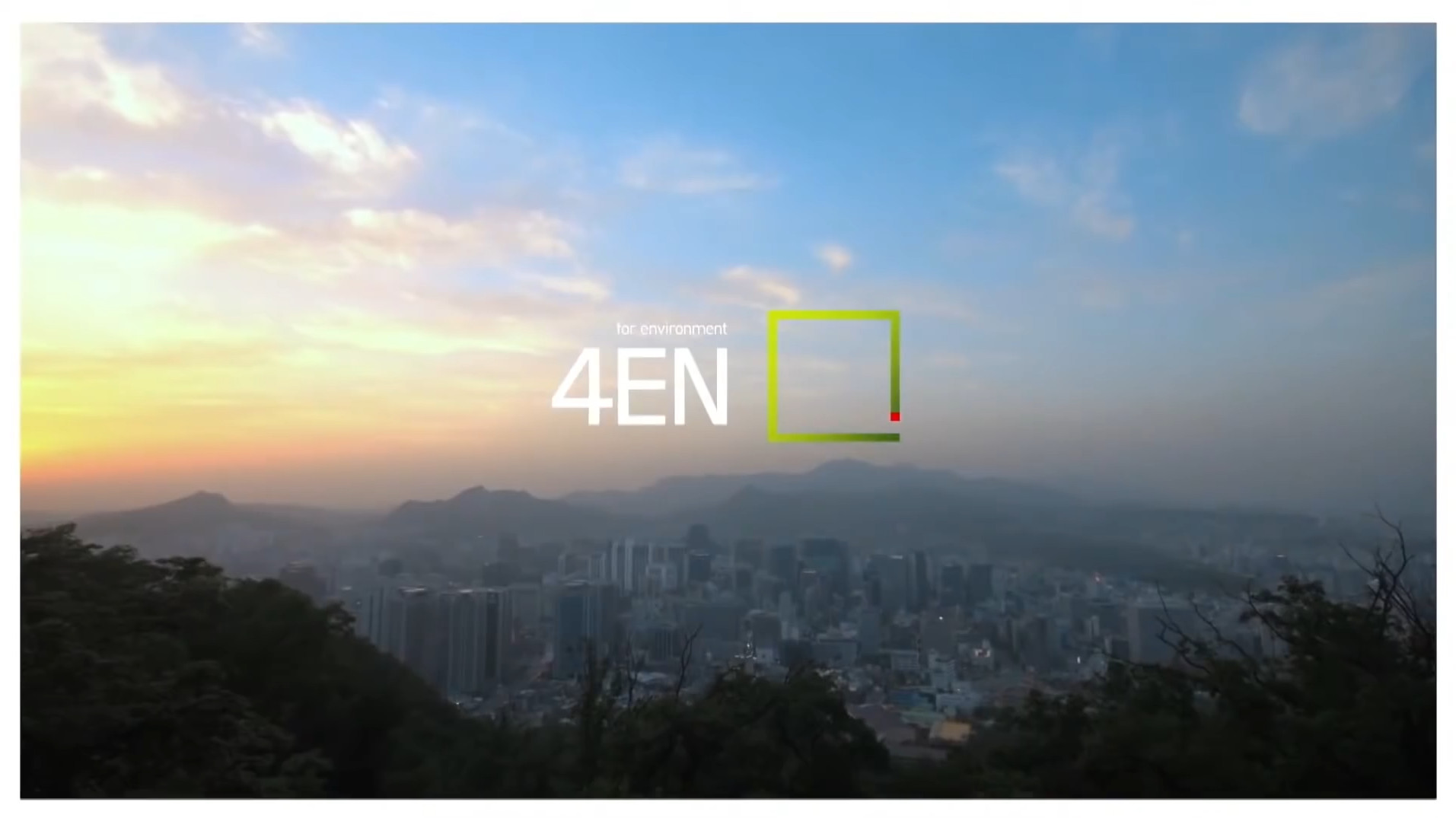GHG Emission Trading
4EN 's efforts to reduce GHGs
4EN has utilized domestic and international carbon offset management programs, such as the Clean Development Mechanism (CDM) and the Carbon Emission Trading Offset to demonstrate the capabilities throughout the entire process of the offset business; 4EN has developed a CDM business using peanut charcoal, registered a reduction business in Myanmar, and developed a methodology of external business for GHG reduction using coffee ground pellets.
CCUS Technology
commercialization
4EN is commercializing CCUS technology through R&D for GHG reduction.
Greenhouse gas reduction
4EN is taking the lead in reducing the use of non-renewable biomass and GHG.
GHG emission trading
4EN is taking the lead in trading GHG emission rights to induce businesses to reduce GHG emissions and respond to climate changes.
Global advancement
4EN is advancing to various countries such as Myanmar and Indonesia based on commercialization technology to reduce GHG emissions.

Supply of peanut charcoal in Myanmar
Myanmar is a county with the lowest power supply rate in Southeast Asia at 34% (2014). Lacking gas supply, wood or wood charcoal is generally used for cooking instead of electricity.
Due to great production of wood charcoal, forest damage is severe enough to reduce 16% (101,770 sq.km) of the entire forest area in 25 years (1990-2015). Besides, the quality of life is also deteriorating due to bronchial diseases from smoke, sparks, and fire using wood charcoal.
4EN aims to contribute to the conservation of Myanmar forests and improvement of the quality of life by producing and selling high-efficiency peanut charcoal. Peanut charcoals are from peanut agricultural by-products and can replace wood or wood charcoal.
Supply of organic fertilizerin Myanmar
Myanmar's outdated production technology and agricultural knowlege still uses transitional chemical fertilizers, leaving soil and environment pollution behind.
Chemical fertilizers are the main culprit of generating nitrogen dioxide (N2O) among the six major GHGs.
4EN plans to conduct a compost production and distribution business using livestock manure to solve this problem.
These organic fertilizers not only increase agricultural production, but also reduce methan gas (CH4), generated from livestock manure, to obtain carbon credits.

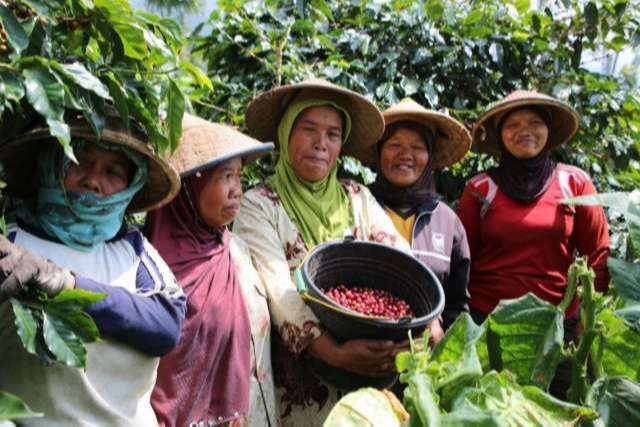
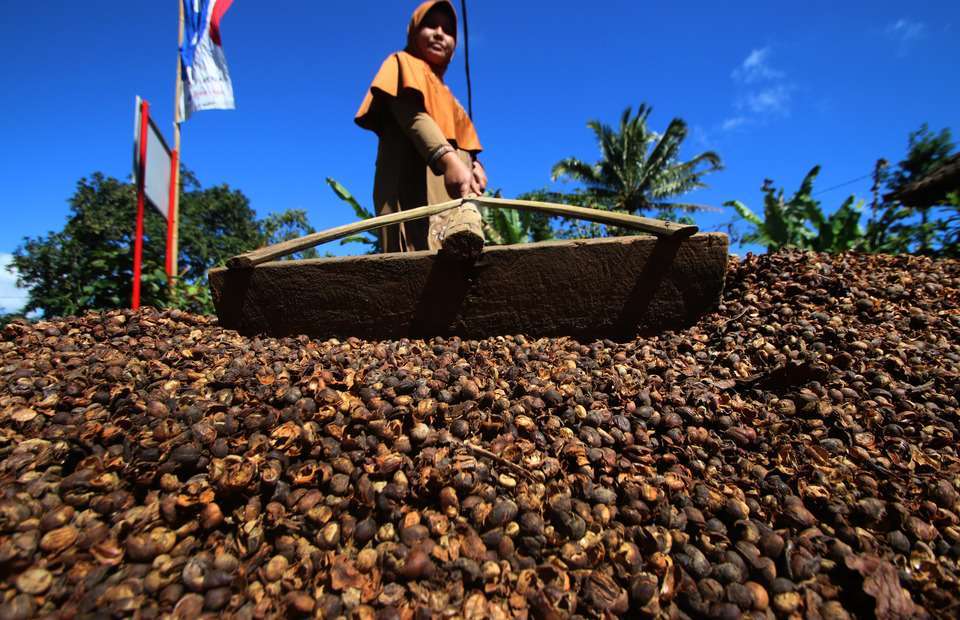
Supply of solid fuel from coffee ground in Indonesia
Indonesia is the fourth largest coffee producer in the world.
4EN plans to conduct R&D and commercialization to convert a large amount of coffee-related wastes from harvesting fresh coffee cherries in Indonesia to eco-friendly fuel.
Solid fuel from coffee grounds
Biodiesel from coffee grounds
These projects can solve waste disposal problems in developing countries, maximize the efficiency of support in social economy, discover a new market for alternative fuels, and acquires carbon credits by reducing GHGs through recycling of waste biomass.
What is GHG emission trading ?!
Emission Trading is a GHG reduction system in Article 17 of the Kyoto Protocol. The government allocates annual emission permits to businesses that emit GHGs so that they can perform emission activities within the scope of the allocation. And, by evaluating the actual GHG emissions from the allocated business sites, trade for extra or shortfall rights are allowed.
In Korea, the "Act on the Allocation and Transaction of Greenhouse Gases ('12.5)" was enacted and has been in force since January 1, 2015 in accordance with Article 46 of the "Basic Act on Low Carbon, Green Growth ('10.1)".
Workplaces with high potential of GHG reduction can sell the excess emission permits to the market while businesses with low reduction potential can purchase emission permits lowing the cost. Each business can voluntarily decide either to reduce or purchase GHG emissions permits according to their capacity, thereby complying with the GHG emission quota.
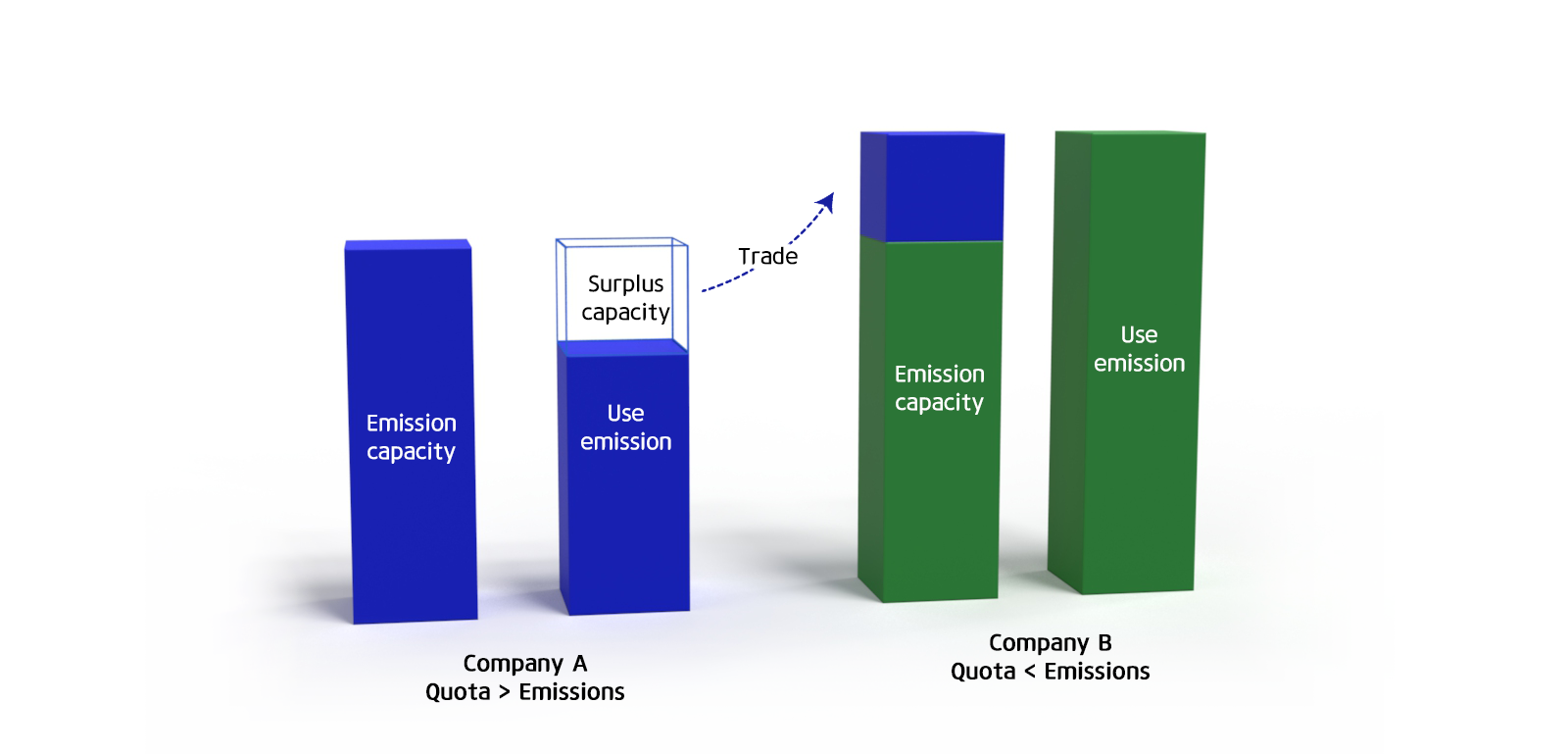
Leading comapny of the Clean Development Mechanism
The Clean Development Mechanism (CDM) is a system in which developed countries with a duty to reduce GHGs invest in developing countries and recognize the reductions arising from projects implemented by developing countries (Article 12 of the Kyoto Protocol). This business system can provide cost-effective GHG reduction to developed countries and environmental, technical, and economic support to developing countries simultaneously.
In addition, both developed and developing countries must cooperate to reduce GHGs in the new climate system starting in 2021. International GHG reduction performance trading will be vitalized through ITMO. Reduction performance of GHG reduction projects by domestic companies has been traded in Korea since 2018.
4EN is registered a participating organization in the UNFCCC and has actively participated in the development of carbon market mechanisms, such as technology transfer to developing countries and discovery of reduction projects for bilateral cooperation in the new climate system. 4EN's focus is on contributing to the possible future by achieving the sustainable development goals (SDGs).
The emission allowance trading system is a core policy in which companies register voluntary GHG reduction projects and utilize certified external offset performance results (KOC) for achieving generating financial benefits through the carbon market. 4EN has utilized domestic and international carbon offset management programs, such as the Clean Development Mechanism (CDM) and the Carbon Emission Trading Offset to demonstrate the capabilities throughout the entire process of the offset business; 4EN has developed a CDM business using peanut charcoal, registered a reduction business in Myanmar, and developed a methodology of external business for GHG reduction using coffee ground pellets.
